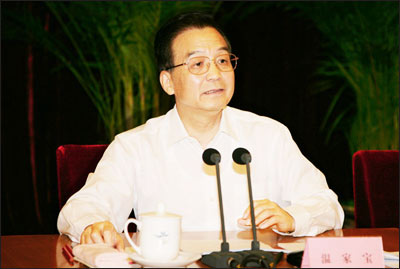| Tools: Save | Print | E-mail | Most Read |
| Rural Reforms Enter New Stage |
| Adjust font size: |
Over the last 30 years China's reforms in rural areas have recorded significant achievements and served the purpose of protecting the material interests of farmers, their democratic rights and helped enhance productivity.
"We should strive to complete the institutional reform at township level, the reform of rural compulsory education and the financial reform at county and township levels in five years or a bit longer," he explained. On the institutional reform at township level Wen stressed the importance of altering the functions of government, streamlining departments, reducing expenditure and improving administrative efficiency. By the end of next year the country will exempt primary and junior high school students in rural areas from tuition and other educational expenses to ensure all children have ready access to education, he said. The salaries of rural teachers have to be included in government budgets and should be guaranteed, he said. Random charges on rural students for various reasons will be prohibited. Self-governance by villagers and expansion of grass-roots democracy are also important tasks in building a new countryside, Wen said. He stressed the importance of democratic elections, decision-making, management and supervision in villages. (Xinhua News Agency September 4, 2006) |
| Tools: Save | Print | E-mail | Most Read |
 |
| Related Stories |
| Product Directory China Search |
Country Search Hot Buys |
